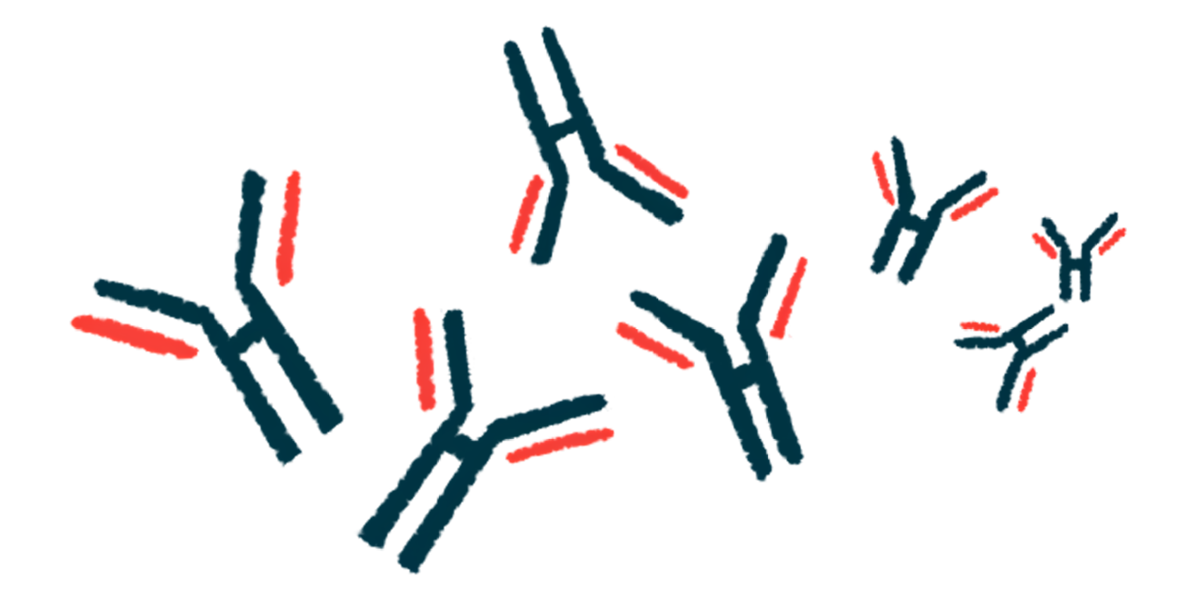Cyrus picks CYR212 as clinical candidate for IgG-driven diseases
US company to develop therapy for MG, other autoimmune disorders
Written by |

Cyrus Biotechnology has selected CYR212 as its clinical development candidate for myasthenia gravis (MG) and other autoimmune diseases driven by immunoglobulin G (IgG) self-reactive antibodies, the company announced in a press release.
According to the U.S.-based biotech, CYR212’s profile — as seen in preclinical data culled from animal models — is “consistent with a superior therapeutic candidate for the treatment of a broad range of IgG-mediated diseases.”
The treatment candidate is based on a natural enzyme that breaks down IgG antibodies. However, it has been improved to avoid triggering unwanted immune reactions, and to stay active in the body for longer periods of time. These changes mean patients could need fewer doses and experience fewer side effects, per Cyrus.
“IgG is the principal antibody type responsible for blocking infections, but in IgG-mediated autoimmune disease it attacks host tissues, causing a broad range of often severe [diseases],” said Lucas Nivon, PhD, Cyrus’ CEO. “CYR212 addresses over $20 [billion] of potential clinical market opportunities in IgG-driven autoimmune disease.”
CYR212 clinical candidate designed using Cyrus platform
A blood protein, antibodies are produced by the immune system in response to infections and any unwanted substances entering the body. In autoimmune diseases like MG, however, the body produces self-reactive antibodies that target and attack its own tissues.
Imlifidase, an enzyme that binds to IgG antibodies and breaks them down into pieces, was derived from bacteria by Hansa Biopharma. It is marketed in the European Union, as Idefirix, to prevent the body from rejecting a newly transplanted kidney in patients who have IgG antibodies against the donor’s tissue.
However, imlifidase doesn’t last long in the body and often triggers unwanted immune reactions, limiting its use. CYR212 is a new version of the original enzyme that was designed using Cyrus’ platform to stay active longer and avoid triggering unwanted immune reactions, making it more suitable for treating a wider range of autoimmune diseases.
Preclinical studies in rabbits showed that CYR212 reduced IgG levels in a predictable way. Unlike the original enzyme on which it is based, CYR212 did not cause the body to produce anti-drug antibodies, which could limit how well it works over time. This was found even after repeated doses.
“We have now demonstrated that CYR212 shows no [anti-drug antibodies] up to 30 days at a clinically relevant dose in rabbits and confirmed the subcutaneous [under-the-skin] bioavailability of CYR212 in preclinical [pharmacokinetic] studies,” said Erik Procko, PhD, Cyrus’ chief scientific officer. Pharmacokinetics refers to the movement of drug into, through, and out of the body.
Based on modeling of … preclinical [pharmacokinetics] data and [the pharmacokinetics] of approved related biologics, we anticipate at least a [four-week] dosing interval for clinical use of CYR212.
The treatment candidate also stays active in the body longer, suggesting it may only need to be given every four weeks, or about once per month.
“Based on modeling of … preclinical [pharmacokinetics] data and [the pharmacokinetics] of approved related biologics, we anticipate at least a [four-week] dosing interval for clinical use of CYR212,” Procko said.
For people with MG, this is important because their disease involves IgG antibodies that interfere with how nerves and muscles communicate, causing muscle weakness. CYR212 has the potential to reduce IgG levels, easing symptoms, the company believes.
Some medications like FcRn blockers can bring down IgG levels by stopping its recycling. However, they take weeks to work and require long infusions of large doses. CYR212 is expected to work faster, and has the potential to be given as a small injection under the skin, making it more convenient for patients, according to the company.




Leave a comment
Fill in the required fields to post. Your email address will not be published.